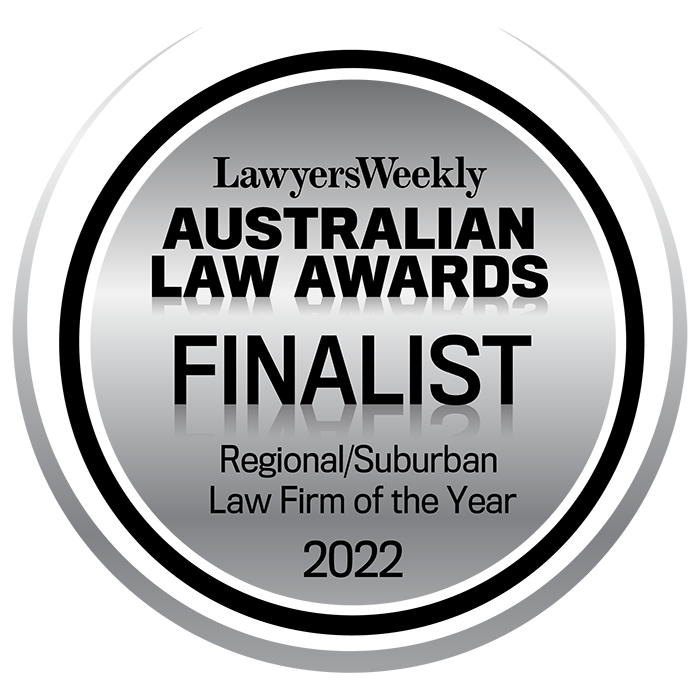Challenging A Will & Estate Litigation
Due to the fact that a will can be contested or challenged in Queensland, the importance of ensuring your will is valid and drawn by an experienced wills and estates litigation lawyer cannot be overstated. Seek legal advice on wills and estate planning with Marino Law.
Our team of Wills and Estate Lawyers understand the legal complications and potential conflicts that come with contesting or challenging a will or estate disputes. We will work through all aspects of your legal matter with precision whilst endeavouring to reduce any stress or complexity.

REAL RELATIONSHIPS. PROVEN RESULTS.
Gold Coast’s Leading Will Dispute Lawyers
Book an appointment with our experienced Gold Coast wills and estates lawyers.
- Gain certainty from multi-award winning, highly-qualified team of legal professionals
- Afford premium legal services with Marino Law’s cost-effective rates
- Access practical solutions, strategic legal advice & a track record of success
- Consult with recognised leaders in our specialised wills & estates practice areas
OBLIGATION FREE
Challenging A Will In QLD
There is a significant difference between challenging a will and contesting a will in QLD. Below, we have outlined some of the finer details to help you gain a better understanding of this complex area of law. If you have a complicated matter to discuss, reach out and get in touch with our will dispute lawyers today.
A challenge to a Will is a challenge to the validity of the document itself. It’s usually as a consequence of:
- The Will being improperly made (ie fraud or forgery or other suspicious circumstances);
- The Will being made due to undue influence;
- The Will-maker lacking the mental capacity (also known as testamentary capacity); or
The Will does not meet the formal requirements of the Succession Act 1981 (Qld) to constitute a valid will.
Who Can Challenge A Will?
Typically, a challenge to a Will is usually made by a person who holds an interest in the estate, such as:
- A beneficiary or executor of the will;
- A beneficiary or executor of an earlier will; or
- If the deceased’s death occurred intestate (i.e. without a will at the time of death), a person who would stand to benefit from the deceased estate under the rules of intestacy in Queensland.
A successful challenge to the Will renders it invalid, resulting in any earlier Will or the rules of intestacy being followed thereafter to administer the deceased’s estate. Accordingly, the consequences for the estate and beneficiaries in question can be dire, including the loss of any intended benefit by the invalidated will from the estate.
A will can be challenged both before Probate of the Will has been issued by the Supreme Court (in which case a Probate Caveat should be urgently lodged with the Court) and after Probate has been issued, the latter of which would require Probate to be returned and the Court will convene a hearing to determine the validity of the will. If the Will is challenged prior to a grant of probate being issued, the responsibility of proving the Will is valid can sometimes shift to the executor seeking to propound the Will. This is why it is essential to take prompt action.
Legal Costs Of Challenging A Will
Where a challenge to the Will is successful, the successful application may (subject to the discretion of the Court) receive a costs order in their favour. Where such a challenge is unsuccessful, the Court could potentially order the applicant to pay the Court costs of the application.
Why Choose Us

Experienced
Multi-award winning, highly qualified and experienced team of legal professionals.

Specialised
Recognised as leaders in our specialised areas of practice of business and personal law.

Practical
Practical solutions, strategic legal advice and a track record of success.

Affordable
Access premium legal services at Marino Law’s cost effective rates.

Personal & Business
Marino Law can handle all of your personal and business law requirements.

Central
Easily accessed with easy parking, find Marino Law on the highway at Mermaid Beach.
Contesting A Will (QLD)
Contesting a will is a right afforded to a specific class of people under the Succession Act 1981 (Qld) through the making of a family provision application (“FPA”).
Eligible applicants include the deceased’s spouse, de facto or registered partner, biological and adopted children, stepchildren and certain other people who are financial dependents of the deceased (either wholly or substantially), who have grounds for contesting on the basis that the maker of the will had a moral obligation, yet failed to make appropriate or adequate provision for the claimant’s maintenance and support.
Time Limits To Contest A Will
In Queensland, there is a time limit that any claimant must inform the executor within six months from the date of the death of the deceased by written notice. Claims must also be filed within nine months following the death of the deceased. Failure to meet this timeframe may result in the distribution of the estate by the executor and the claimant’s right to make an FPA thereafter would be lost.
Extension rights may be given by the Supreme Court in certain circumstances, having regard to the length, reasons and circumstances of such delay.
Upon receipt of such written notice, the executor must consider the merits of the claim and negotiate via an alternative dispute resolution process (negotiation, mediation or otherwise). Any cases that are not resolved in these stages will proceed to trial, where the Court may be asked to determine what may be an appropriate level of provision from the estate, based on a number of factors, including (without limitation) the relationship of the claimant to the deceased, the financial position, age, health and means of the applicant, the strength of the claim against the deceased’s level of obligation to provide for the applicant or others, who the named beneficiaries are in relation to the deceased and/or the prevailing circumstances (such as any evidence or reasons as to why the deceased may have deliberately or otherwise failed to make provision for the applicant in their Will).
Legal Fees For Contesting A Will
Costs in such proceedings are at the discretion of the Court, which may award costs to a successful applicant (to be paid by the estate), or unsuccessful applicants may have cost orders made against them. Generally, however, if a claim is not frivolous or vexatious, the estate will usually bear the costs of the parties to the claim.

We Let Our Clients Do The Talking
“As an executor, I retained Marino Law to assist with a claim against the estate. Thanks to their expertise, we were able to avoid costly litigation. I highly recommend Marino Law for their professionalism and effective resolution.”
“I engaged Marino Law for a protracted litigation matter. The situation had many different aspects and was therefore overwhelming. Responses were concise and our lawyer conducted himself calmly and professionally at all time- the situation was always well managed. We achieved the desired outcome and I am very grateful. I have no hesitation recommending this firm.”
“They quickly gained an understanding of my situation and their advice was succinct, relevant and professional. They explained the issues in a manner in which I was easily able to understand. Highly recommend.”
Our Experience
1.25 Hours
Someone retains the services of Marino Law every 1.25 hours
150+ Years
Over 150 years combined experience
15+ Years
Achieving successful outcomes for clients for over 15 years
14,000+ Clients
Over 14,000 valued clients
Family Provision Claims For Contesting A Will (QLD)
Understanding Family Provision Claims
Marino Law recognises the intricate nature of family affairs, especially when it pertains to managing the assets of deceased parties.
It is a common occurrence for close kin or financial dependents to find themselves embroiled in difficulties when/if the deceased has chosen to allocate their assets or monetary resources to different parties. In this scenario, the family members or dependents may be left with minimal or no provision, causing substantial distress.
This is precisely the situation where a family provision claim becomes of paramount importance. Family provision applications may be brought even if the deceased person did not have a valid Will at the time of their death (died intestate).
Understanding the Role of the Court
It’s crucial to understand that the Court has the prerogative to take into account any disentitling conduct that might have justified the decision of the deceased (the testator) to assign little or no inheritance to a certain beneficiary.
These disqualifying behaviours may encompass serious criminal behaviour, drug or alcohol abuse, or even estrangement brought about by the claimant’s own actions.
The Legal Framework
Pursuant to the Succession Act of 1981 (Qld), the court has the authority to apportion a segment of the deceased’s estate to an eligible person. This authority remains valid even if the will does not accommodate them or provides an inadequate provision as per sections 40–44 of the Succession Act.

Lodging A Family Provision Application
The Family Provision Application is filed in the Supreme Court of Queensland. The claimant must provide an affidavit detailing their financial position, relationship with the deceased, and reasons for the claim. The Court then assesses various factors to determine whether adequate provision has been made for the claimant from the deceased’s estate, including:
- The financial circumstances of the claimant and other beneficiaries;
- The claimant’s customary standard of living;
- The nature and duration of the relationship between the claimant and the deceased;
- Any history of support provided by the deceased to the claimant;
- The total value of the deceased’s estate;
- Any promises the deceased made to the claimant regarding the division of their estate;
- Any contributions the claimant made towards the deceased’s estate;
- Any other matter the Court decides is relevant.
If a claimant can demonstrate that they have been left with inadequate provision, the Court has the discretion to make orders it considers appropriate. This can include altering the distribution of the estate to provide for the claimant in light of their needs, the size of the estate, and the needs of the other beneficiaries.
Lodging a Family Provision Application involves legal complexities, and you should seek legal advice to navigate the process effectively. If you wish to explore a family provision claim further, we are here to assist. Marino Law is dedicated to providing expert advice and guidance in such intricate legal matters.
Will Dispute Lawyers – Frequently Asked Questions
What costs are involved with challenging a will?
The expenses associated with contesting a will can vary significantly, primarily contingent upon the stage at which resolution is achieved, the jurisdiction where the claim is lodged, and the intricacy of the case. Costs can range from several thousand to hundreds of thousands of dollars. Regardless of the duration taken to reach a settlement, parties involved should factor in the following legal expenses:
- Expenses to gather evidence and review discovery
- Legal fees for representation
- Mediation costs
- Court fees for filing notices and affidavits
Costs in such proceedings are at the discretion of the Court, which may award costs to a successful applicant (to be paid by the estate), or unsuccessful applicants may have cost orders made against them. Generally, however, if a claim is not frivolous or vexatious, the estate will usually bear the costs of the parties to the claim.
Is it essential to seek legal counsel when contesting a will?
Engaging in legal representation is pivotal in navigating the complexities of will disputes. At Marino Law, we provide the following crucial services:
- Detailed interpretation and explanation of the legal landscape and potential avenues available to you.
- Preparation and filing of necessary court documentation.
- Accumulation of evidence and robust representation in court proceedings.
- Negotiation of a favourable settlement on your behalf.
Entrust your case to Marino Law, a distinguished legal firm specialising in will disputes.
Can I contest a will based on the deceased’s mental capacity?
The legitimacy of a will may come under scrutiny if concerns arise regarding the mental capacity of the deceased. The premise for such an argument hinges on the indication that the testator, due to dementia or similar health complications, lacked a clear understanding of the repercussions and implications of their will at the time of its creation or amendment. Demonstrating this deficit in testamentary capacity is critical and requires substantial evidence.
What is meant by “solemn form”?
If you have lingering doubts about the legitimacy of a Will for which a Grant of Probate has already been issued, there is an avenue for recourse. You can always approach the court, seeking an order which would instruct the executor to:
- Return the Grant of Probate to the court registry;
- Subsequently, apply for a Grant of Probate, this time, in “solemn form”.
A “solemn form” application, in essence, is your request to the court to decide whether a Grant of Probate for a particular will is warranted. During this solemn form hearing, the court will review all pertinent evidence related to the Will’s validity.
What is undue influence?
The will-maker will be considered to have been unduly influenced where there is a manipulation of a relationship of authority upon the willmaker. Pertaining to the context of wills, it signifies an instance where an individual persuades a testator, or the author of the will, to their advantage at the expense of others.
These circumstances typically transpire when the testator is in a susceptible and reliant state, often observed in situations where the individual is advanced in age or suffering from illness.
What’s the procedure when an individual passes away without leaving a will?
In Queensland, when a person dies without a valid Will or no Will can be found, they are deemed to have died intestate. Their estate is managed according to rigid formulae set down by the laws of intestacy and in accordance with the Succession Act 1981 (Qld) and the Uniform Civil Procedure Rules 1999 (Qld). The deceased’s wishes and preferences are not considered and there is no opportunity for them to make provision for people who are otherwise unrecognised by the Act.
The most appropriate person to administer an intestate person’s estate, usually a close relative or someone with a legal interest in the estate, is appointed by the Supreme Court of Queensland after making an application to receive a grant of Letters of Administration.
The administrator gathers and values the assets, pays any outstanding liabilities, and distributes the remaining assets to the deceased’s relatives based on a predetermined hierarchy outlined in the Succession Act 1981. This hierarchy prioritises the deceased’s spouse, children, and then other relatives such as parents and siblings. If disputes arise over the distribution, they can be resolved through negotiation, mediation, or litigation in court.
More information about the Rules of Intestacy can be found on our Wills & Estate Planning page.
How long does it take to challenge a will?
The duration for contesting a Will is largely contingent on the intricacies of the case and the cooperativeness of the involved parties.
Settlements out of court usually have an approximate timeline of six months, while court proceedings can extend up to two years. The speed of the process can be expedited if all parties are amenable to negotiate at the early stages with a goal to achieve an out-of-court settlement.
What is meant by “grant of probate”?
A grant of probate is a Supreme Court document which effectively constitutes proof recognising a will is legally valid. It also acknowledges the person/s listed as executor/s are authorised to administer the estate to you or other beneficiaries in the event of the will maker’s passing. In the process of applying for the Grant, the executor is mandated to certify the authenticity of the document. Consequently, the Court necessitates to affirm its validity prior to the issuance of the Grant.
What are the most common reasons a will is disputed?
Contentions regarding wills typically surface due to a variety of causative factors, such as:
- Inadequate provision for an individual in the will;
- Non-fulfillment of a specific bequest that was promised to an individual within the estate;
- The existence of an unmistakable error in the will;
- The testamentary capacity of the will-maker is questionable, or there was undue influence exerted.
Award Winning Lawyers






Need Help With Other Legal Disputes?
Marino Law has the expertise to assist you in all your legal matters, including business disputes, commercial and business law and construction or building disputes. Our Accredited Specialist in Commercial Litigation is highly sought after for his expertise and litigation skills.
